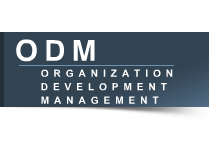Jeffrey R. Immelt, Thomas A. Stewart June 2006 Issue Reprint # R0606C
Harvard Business Review, The HBR Interview
Under Jack Welch's leadership, General Electric's managers applied their imaginations relentlessly to the task of making work more efficient. Jeffrey Immelt succeeded Welch as CEO on September 7, 2001, just in time to see the world change. Corporate scandals and terrorist attacks shook the global economy. In this fundamentally altered context, Immelt knew that GE could not simply cling to its status quo.
Harvard Business Review offers the first deep look under the hood of Immelt's GE. In a conversation with editor Tom Stewart, Immelt was quick to point out that he is not leading a revolution; productivity is still important. But the new focus is on achieving organic revenue growth--and plenty of it. Immelt has set the audacious goal of increasing annual revenues from GE's existing businesses at two to three times the rate of global GDP growth. Hitting that target will depend on deep cultural change and, in Immelt's words, "making it personal" for every one of his managers. He's not afraid to pull the necessary levers.
He has overseen changes to the company's famed talent management process (now, the highest potential executives are the ones who exhibit "growth leadership traits"); established new performance metrics; invested in new marketing capabilities and R&D resources; and created new mechanisms to flag promising ideas. Immelt expects positive results from each of these moves, but the real payoff comes from combining them in a process design he calls "Execute for Growth."
It's vital, he believes, to cast growth as a process because that allows him to tap into a traditional strength of the organization--its process orientation--and put it in the service of the new goal. Meanwhile, investors are reassured to the extent that GE's recent stellar organic growth seems like the reliable and repeatable output of a well-designed process.
Subscribe to:
Post Comments (Atom)


No comments:
Post a Comment